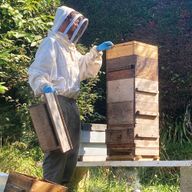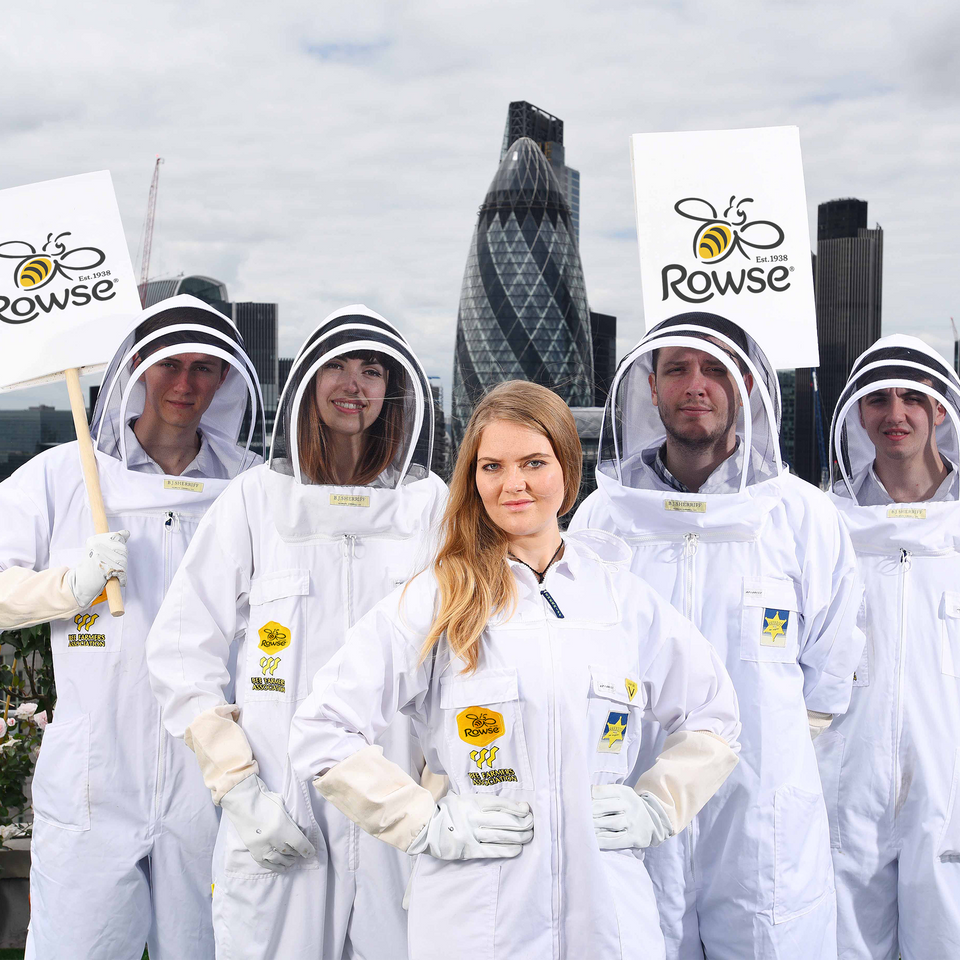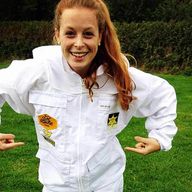
Honey bees will nearly always need beekeepers to help them thrive and survive in the UK. Wild honey bees are nearly extinct in our country, so we really are relying on beekeepers more than ever to look after the bees that live in managed hives.
The big but, however, is that commercial beekeeper numbers are steadily dropping. Most of the beekeepers we do have are close to retirement, with the average age being 66 years old – and they have not yet passed on their valuable bee knowledge to a younger generation. So, even though the likes of Beyonce and David Beckham are helping to make backyard beekeeping cool, we’re going one step further to create a buzz...
In partnership with the Bee Farmers Association (BFA), we have been getting more young people into beekeeping through our Bee A Bee Farmer scheme – an award winning, world class, three-year apprenticeship scheme especially designed to equip young people with the skills and expertise needed to make a successful career in beekeeping. So far, we have over 37 apprentices that are either in training or have qualified.
Successful applicants have the opportunity to work alongside some of the most experienced beekeepers in the country. Alongside on-the-job training, apprentices receive practical courses delivered by industry experts, with areas of study including everything from queen bee rearing, through to marketing, finance and health and safety.
And those who successfully complete the programme are awarded an official accreditation – the Excellence in Bee Farming Diploma, by the Worshipful Company of Wax Chandlers, providing a solid foundation for a rewarding career in the field. The apprenticeship programme is an amazing experience, and a brilliant way to kickstart an exciting start into the world of work.
Don’t just take our word for it, here are some words from some of our apprentice beekeepers.
First up is Amanda John, a 27-year-old professional beekeeper based in Brackley, Northamptonshire, and one of the Bee A Bee Farmer graduates. She currently keeps 25 hives, meaning that in the summer there are around 1 million bees! Amanda says she wanted to work with bees when she met her partner Chris, and her fascination grew watching his dad work as a commercial beekeeper. Eventually, she quit her full-time job to invest more time into helping him, so she thought a qualification would benefit this newfound business interest.
“The Rowse apprenticeship, which is run in partnership with the Bee Farmers Association (BFA), was a great scheme for me to learn about bee farming outside of my employment. When working with the same beekeepers, you learn their techniques and methods but nothing outside of that. However, the apprenticeship helped me to understand the different methods and ways of beekeeping. It also gave me background information about bees themselves including anatomy and behaviours, which I wouldn’t necessarily have learnt on the job. One of the great aspects of it is you get to meet loads of other young bee farmers like you and build a close-knit community. It’s really inspiring to be around like-minded people in a similar situation to yourself.”
Next up meet Jim Bliss, another of our talented beekeeping apprentices based in Cumbria, in the heather moorlands. An area important for bees as they can create vital winter stores from flowers that bloom so late in the year. So, what did Jim love about our apprenticeship scheme?
“The Rowse Apprenticeship Scheme has been really beneficial to my career. It’s given me great insights into other bee farmers around the country and given me a good network of people to talk through problems with, and also a really good time to go in our block release weeks to learn more bees and how they operate.”
Applicants interested in taking up commercial beekeeping full time can send their CV, along with contact details and a cover letter to beeabeefarmer@rowsehoney.co.uk. Use the cover letter as your chance to capture our attention; we want to hear what relevant skills and experience you would bring to the role and why you think you would be suited to a career in beekeeping.

